
Olusegun Obasanjo
| Use attributes for filter ! | |
| Gender | Male |
|---|---|
| Age | 87 |
| Date of birth | March 5,1937 |
| Zodiac sign | Pisces |
| Born | Abeokuta |
| Nigeria | |
| Children | Iyabo Obasanjo-Bello |
| Dare Obasanjo | |
| Iyabo Obasanjo | |
| Adeboye Obasanjo | |
| Gbenga Obasanjo | |
| Olubumi Obasanjo | |
| Damilola Obasanjo | |
| Spouse | Stella Obasanjo |
| Lynda Obasanjo | |
| Parents | Amos Adigun Obasanjo Bankole |
| Ashabi Obasanjo | |
| Job | Statesperson |
| Awards | Indira Gandhi Prize |
| CAF Platinum Award | |
| Education | National Open University Of Nigeria |
| Previous position | President of Nigeria (1999–2007) |
| Grandchildren | Jimi Bello |
| Presidential term | May 29, 1999 – May 29, 2007 |
| Edited works | Elements of Democracy |
| Date of Reg. | |
| Date of Upd. | |
| ID | 469214 |
My command
Not My Will
Nzeogwu
This animal called man
My Watch Volume 1: Early Life and Military
My Watch Volume 2: Political and Public Affairs
Making Africa Work: A Handbook for Economic Success
My Watch Volume 3: Now and Then
Africa in perspective
Guides to effective prayer
A New Dawn: A Collection of Speeches of President Olusegun Obasanjo
Hope for Africa
Africa through the eyes of a patriot
Women of virtue
Africa embattled
Democracy Works: Re-Wiring Politics to Africa's Advantage
Constitution for National Integration and Development
Forging a Compact in U. S. -African Relations: The Fifth David M. Abshire Endowed Lecture, December 15, 1987
I see hope
Addressing Africa's Youth Employment and Food Security Crisis: The Role of African Agriculture in Job Creation
Years of Reconstruction : Selected Foreign Policy Speeches of Olusegun Obasanjo
Sermons from prison
Standing tall 2
Management in Agriculture & Rural Development: A Practicioner's View
Olusegun Obasanjo Life story
Chief Olusegun Matthew Okikiola Ogunboye Aremu Obasanjo, GCFR is a Nigerian retired military officer and statesman who served as Nigeria's head of state from 1976 to 1979 and later as its president from 1999 to 2007.
Ethiopia's Tigray crisis: Deaths from starvation after aid halted - official
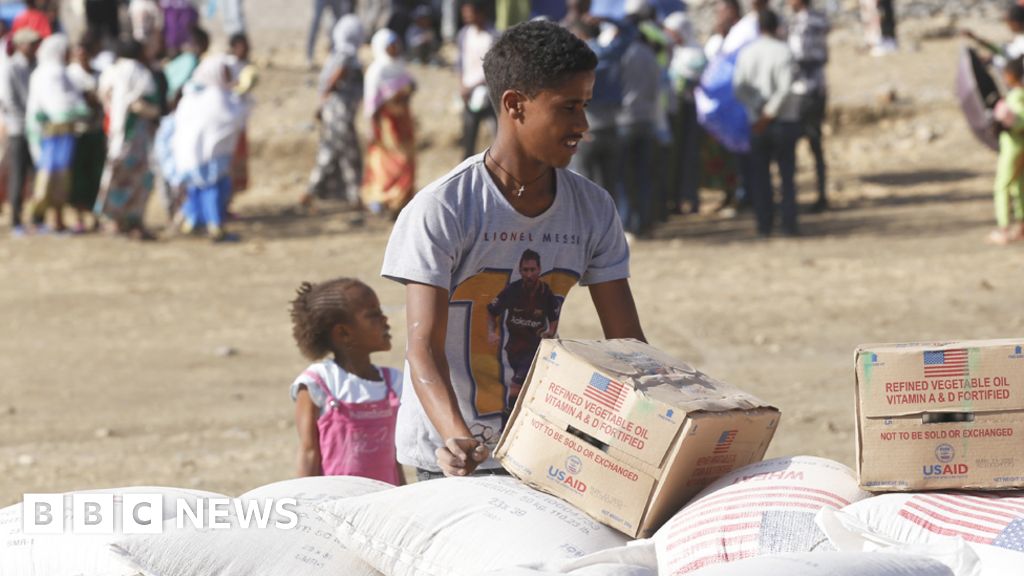
... AU envoy, former Nigerian President Olusegun Obasanjo, said around 600,000 people died in the two-year conflict...
Ethiopia's Tigray conflict: Truce agreed
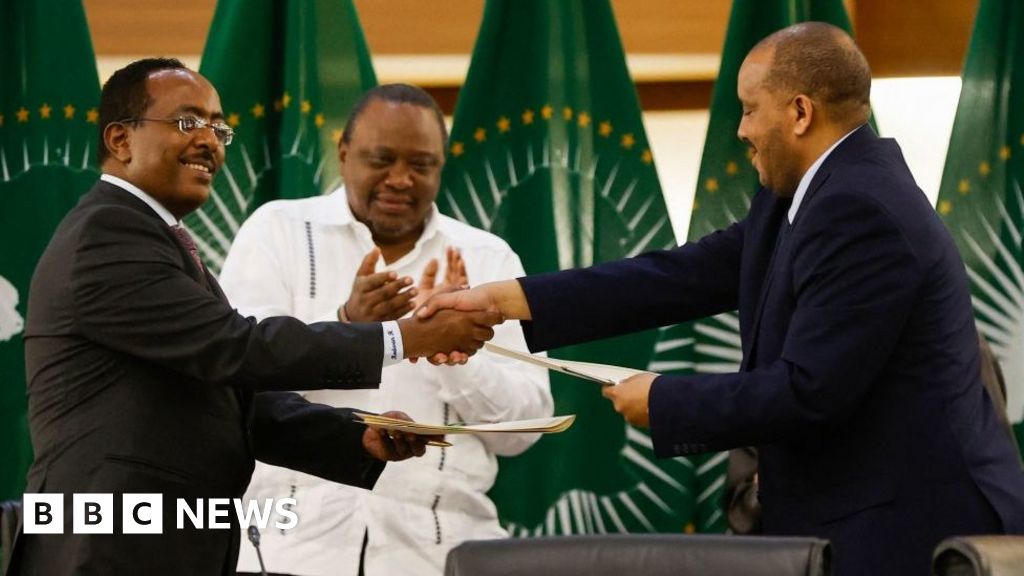
... Former Nigerian President Olusegun Obasanjo, who mediated the deal agreed after a week of talks in South Africa, said it was just the beginning of the peace process...
Queen Elizabeth II and Africa: In pictures
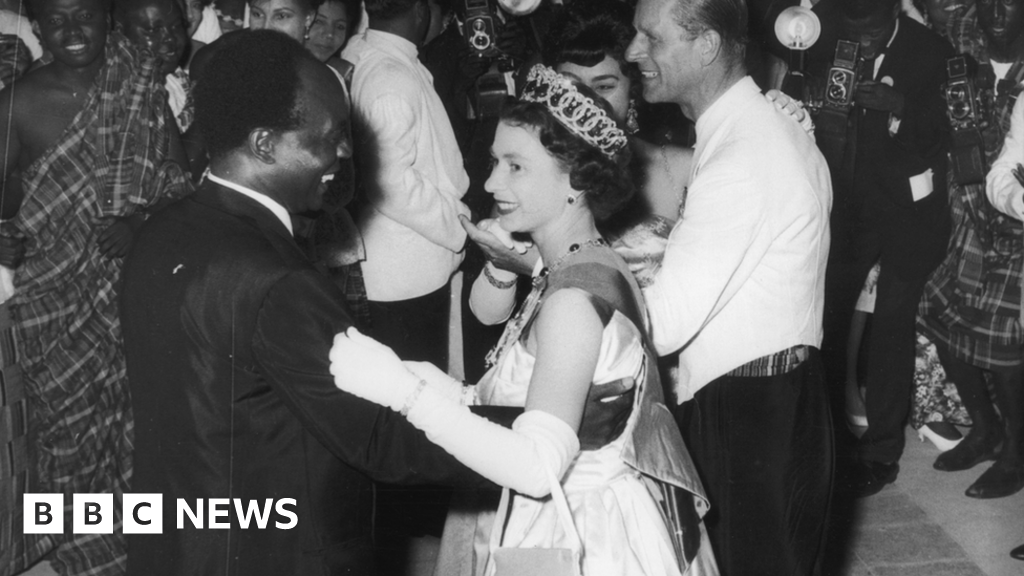
... The Queen and President Olusegun Obasanjo are seen here at the official opening of the Commonwealth Heads of Government meeting in Abuja...
Ethiopia civil war: Doctors among those begging for food in Tigray
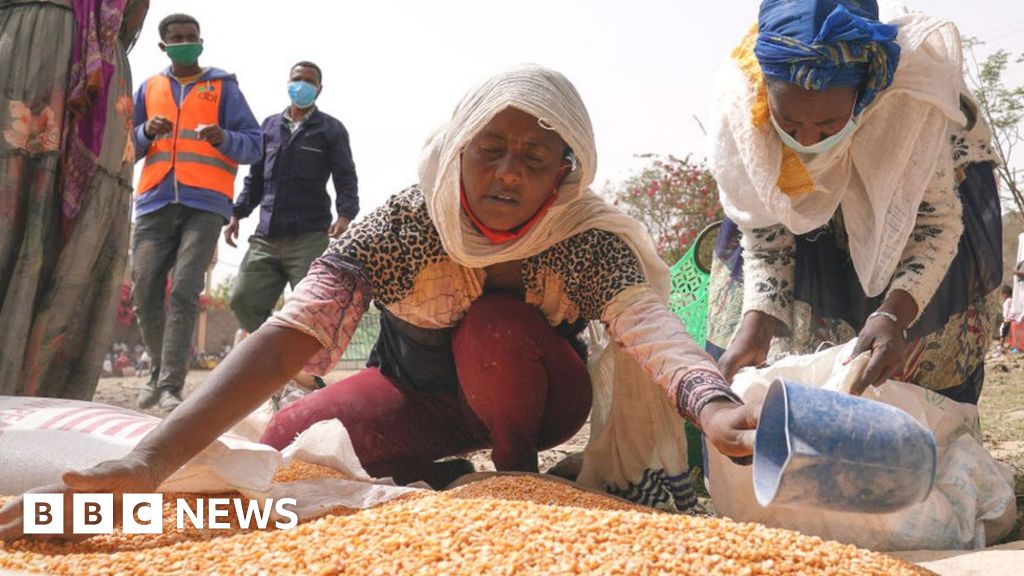
... The newly appointed US special envoy for the Horn of Africa, David Satterfield, recently travelled to Addis Ababa while the African Unions mediator, former Nigerian President Olusegun Obasanjo, has also met senior Tigrayan leaders...
Ethiopia's Tigray conflict: Why the rest of the world is worried
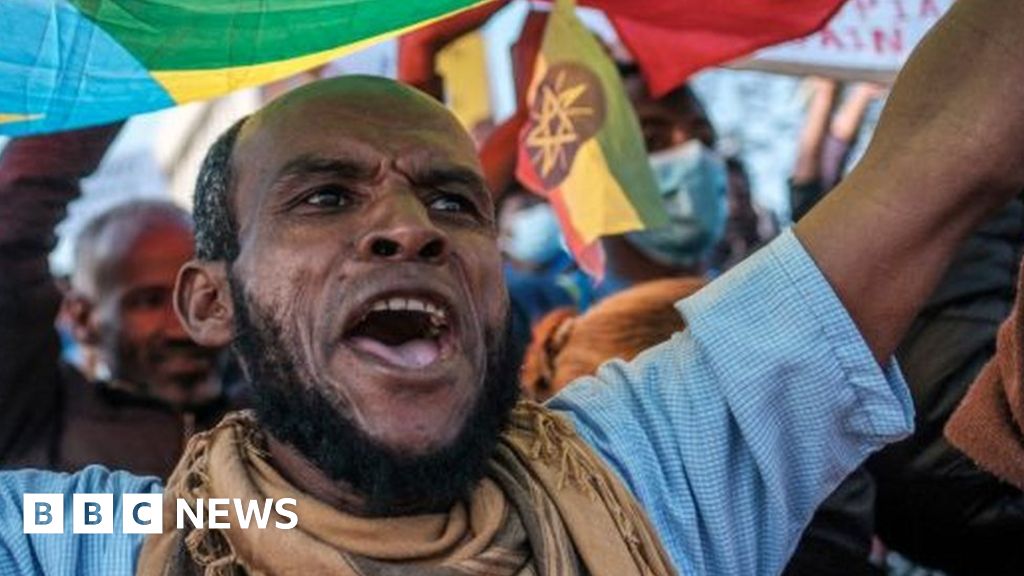
... The African Union envoy to the region, former Nigerian President Olusegun Obasanjo, has spoken about a small " window of opportunity"...
Five things about Nigeria: The super power, without power
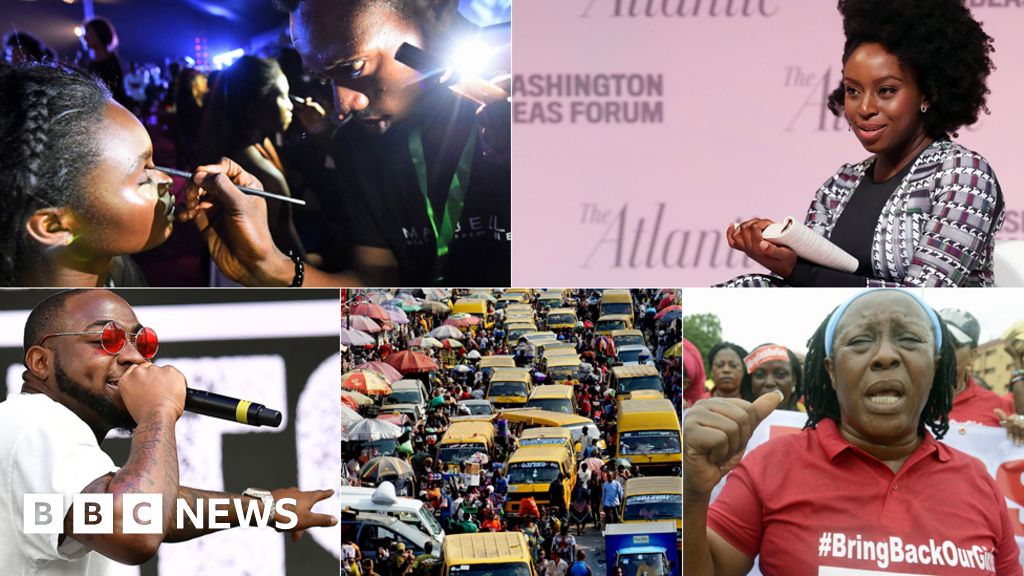
... look at the population growth in Africa in General, the former Nigerian President Olusegun Obasanjo has warned that without proper planning, it could become a political disaster...
Nigerian elections: Has Boko Haram been defeated?
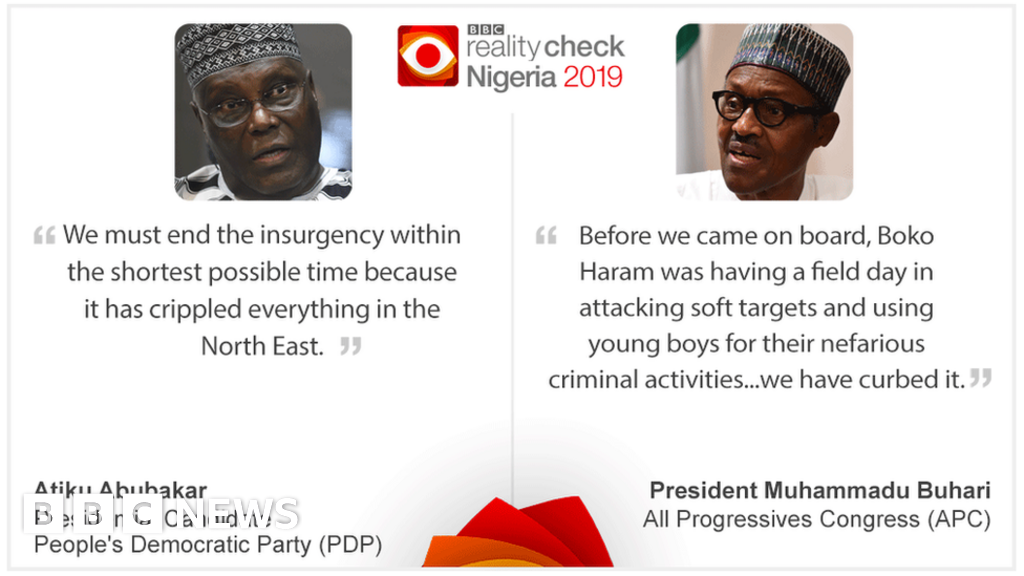
... The competing claimsThe former Nigerian President Olusegun Obasanjo, who is supporting main opposition candidate, Atiku Abubakar, has strongly criticised President Muhammadu Buhari s record on tackling Boko Haram...
Nigerian elections: Has Boko Haram been defeated?
The Islamist militant group Boko Haram has been active in north-eastern Nigeria for well over a decade.
President Buhari says its activities have been largely brought under control since he assumed office in 2015.
His political opponents disagree and say The Situation has recently deteriorated both in terms of The Number of attacks and kidnappings by The Group .
Ahead of Nigeria's elections on 23 February, BBC Reality Check examines the competing claims over the security situation in the country.
What is Boko Haram ?Formed around 2002 as a non-violent organisation with the aim of purifying Islam in northern Nigeria, it became increasingly radicalised and eventually adopted militant tactics In Pursuit of its aims.
It has been active not only in Nigeria, But also in the neighbouring countries of Chad, Niger and Cameroon.
Tens of thousands of civilians have been killed and More Than two million displaced over The Past decade.
Boko Haram has been notorious for kidnapping schoolchildren and attracted global media attention in 2014 following the abduction of almost 300 girls from a school in The Town of Chibok, in Borno, The State where the militant group has been most active.
In 2015, Boko Haram was ranked the by The Institute for Economics and Peace.
Since then, territory controlled by The Group has declined and it has splintered into competing factions.
However, The Islamist militants remain active in the region, defying attempts by the army to bring the insurgency to an end.
To underline this continued activity, in 2018 More Than 100 schoolgirls were kidnapped from the northern town of Dapchi. Most of The Girls were eventually released.
The competing claimsThe former Nigerian President Olusegun Obasanjo , who is supporting main opposition candidate, Atiku Abubakar , has strongly criticised President Muhammadu Buhari 's record on tackling Boko Haram .
"The security situation has deteriorated, with kidnapping everywhere," said Mr Obasanjo in January.
But President Buhari's view of the security situation is very different. He says the militants have been "decimated" since 2015 in their stronghold of Borno State.
So What are the available facts regarding both attacks on civilians and on kidnappings?
Have attacks by Boko Haram declined?Insecurity and poor communications in rural areas make assessment both for the government and independent organisations particularly difficult and many incidents go unreported.
The Nigerian government's National Bureau of Statistics provides Public Access to economic, social and general security data gathered within Nigeria But a spokesman told Bbc News it did not collect data on the activities of Boko Haram .
However, research by the (ACLED) tracks information by monitoring local media and other reports.
From a peak in 2015 of More Than 5,000, The Number of deaths attributed to Boko Haram has fallen off significantly to below 1,000 a year for The Past three years.
This decline followed a military campaign launched against Boko Haram in 2015 by the Nigerian government, with international support.
Large areas of territory previously controlled by Boko Haram were recaptured during this offensive.
More about Nigeria's elections:So, President Buhari is right to say killings by militants have declined substantially since he came to office in 2015.
But these attacks have not ended completely and there have been several in the early weeks of 2019.
"In terms of the current situation, I do think the current trend line is quite dangerous and that they are far from defeated," says Alex Thurston, a visiting assistant professor of Political Science and comparative religion at Miami University of Ohio.
What about kidnappings?The, a product of The Council on Foreign Relations (CFR), in Washington, monitors kidnappings through local media reports.
These indicate a peak in The Number of kidnappings in 2014 and 2015, when Boko Haram was at its strongest militarily.
However, despite a dramatic Fall In reported kidnappings in 2016, The Level has risen since then, with 310 reported last year.
One theory put forward for this increase is that as Boko Haram has lost territory and military influence, its tactics have shifted away from direct confrontation with security forces.
Instead, the militants have turned their attention to soft targets such as schools and rural villages, taking hostages from these locations.
So, when Mr Obasanjo says "the security situation has deteriorated with kidnapping everywhere", he's right in the sense that The Level of kidnapping is on the increase and that major incidents such as the kidnapping of More Than 100 schoolgirls in Dapchi, in 2018, do give serious cause for concern.
This fear is particularly heightened given Boko Haram 's use of children as Suicide Bombers . In 2017 and 2018, there were 77 and 26 incidences respectively of children being used in this way by the militants. In 2016 this figure was nine, according to Unicef.
Are kidnappings 'everywhere'?Looking at the distribution of all kidnappings across Nigeria, this is clearly not the case, with Boko Haram operating largely in the far north-east of the country.
Kidnappings have also been regularly reported in the country's oil-rich southern Niger Delta region - But these are unrelated to the activities of Boko Haram .
So, looking at the overall picture of kidnappings, not just by Boko Haram , you can see that the distribution is more geographically widespread - But it's certainly not the case as Mr Obasanjo says that kidnappings have been taking place "everywhere" across the country.
Overall, the picture of Boko Haram activity in the north-east of Nigeria appears to be one of declining military activity.
But along with this has come a recent rise in kidnappings although it's not clear whether this indicates a resurgence in the strength of The Group or a re-focusing on softer targets.
Amendment: The Nigerian presidential election has been delayed until 23 February and this has been reflected in the article.
boko haram, reality check, nigeria, nigerian general election 2019
Source of news: bbc.com















